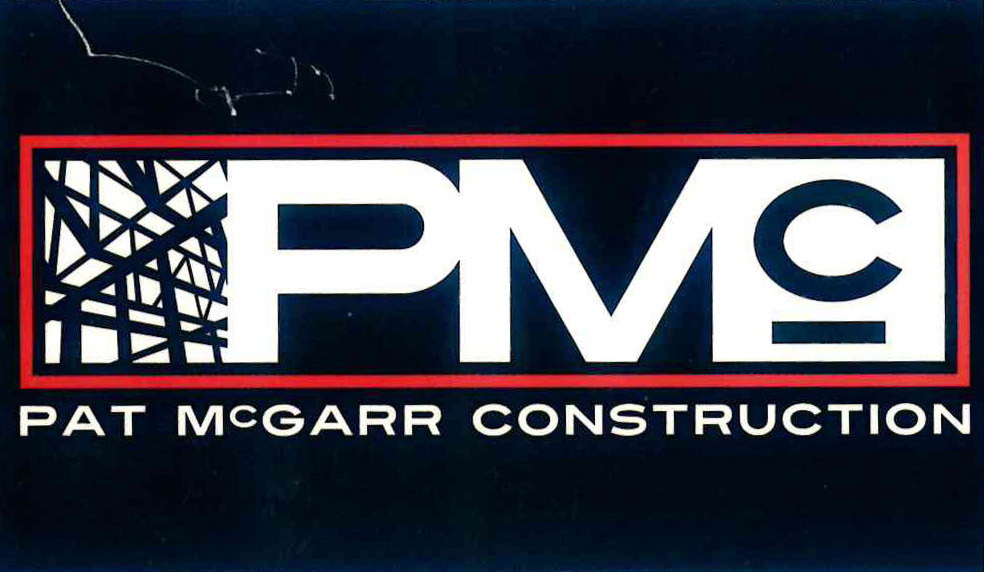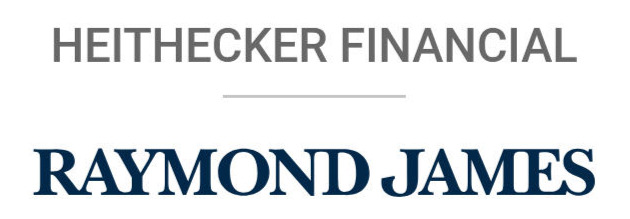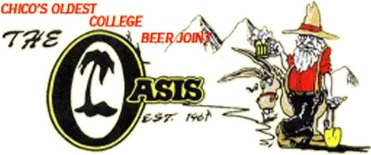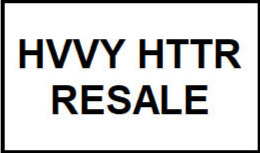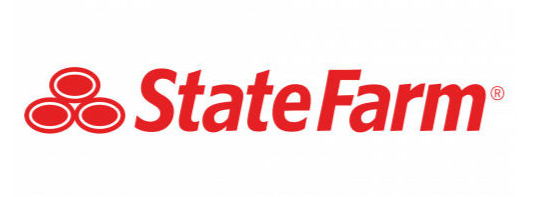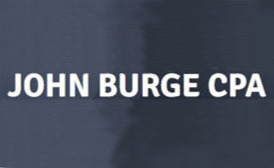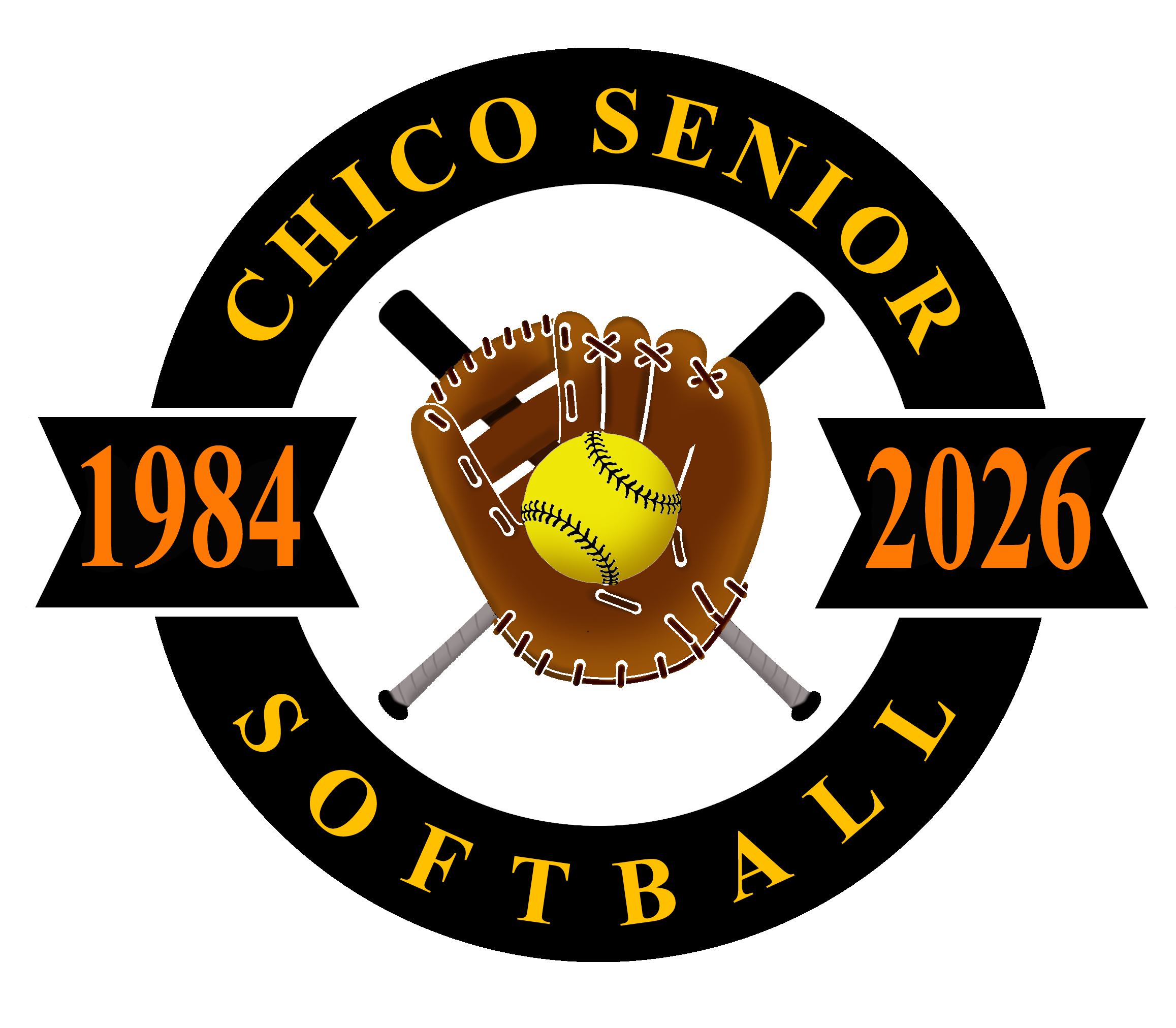December in Baseball History
Published by Evan Wagner
Jan 01, 2024
Interesting Baseball History for the month of December:
1862 - A crowd of 40,000 watches two teams of imprisoned Union Army soldiers play baseball at Hilton Head, South Carolina. Civil War historians are debating the actual size of the crowd.
1877 - The Professional Baseball League of Cuba was founded.
1897 - Charles H. Ebbets, team treasurer, purchased controlling interest of the Brooklyn Dodgers.
1901 - At the league meeting, the Milwaukee franchise is officially dropped from the AL and is replaced by the St. Louis Browns.
1902 - The AL announces purchase of grounds for a stadium in New York, and the next day the NL declares its readiness to make peace in the war between the leagues.
1906 - NL umpire and future HOF'er Hank O'Day suggested that the batter's box be outlined with white rubber strips rather than chalk, making it impossible for hitters to erase the lines.
1914 - Walter Johnson accepts an advance from the Federal League Chicago Whales. Clark Griffith threatens to take Johnson to court, claiming he has paid Johnson for the reserve option in his contract. Griffith travels to Coffeyville, Kansas, to persuade his franchise player that the option clause is legal and binding. Whales manager Joe Tinker says he has signed Johnson for $16,000 and given him a $6,000 bonus. Two weeks later Griffith signs Johnson for three years at $12,500 per year and returns the bonus to the Feds.
1915 - Organized baseball and the Federal League sign a peace treaty at Cincinnati, ending their two-year war. The Feds agree to go out of existence, but the major leagues pay an enormous price: $600,000 for distribution to FL owners, the amalgamation of two Fed franchises, one each into the NL and AL, recognition of Fed players' eligibility, and agreement to bid for them in a Fed-controlled auction.
1916 - Under pressure from the Players' Fraternity, the National Commission orders that injured players shall get full pay for the duration of their contracts. The injury clause previously let clubs suspend players after 15 days pay.
1918 - Kid Gleason replaces Pants Rowland as White Sox manager following the team's skid to fifth place. Gleason will win the American League pennant as a rookie skipper, but it will be tarnished by the improprieties of eight members of the Black Sox in the 1919 World Series.
1919 - Although it will not be officially announced until January, the Yankees buy Babe Ruth from financially pressed Harry Frazee, paying $100,000 (one-fourth cash, plus $25,000 a year at 6 percent) plus guaranteeing a $300,000 loan with Fenway Park as collateral.
1919 - The NL votes to ban the spitball's use by all new pitchers. The ban will be formally worked out by the Rules Committee in February.
1920 - The AL votes to allow pitchers who used the spitball in 1920 to continue using it as long as they are in the league. The NL will do the same. There will be 17 holdover spitballers in all.
1921 - At the major league meetings, the AL votes to return to the best-of-seven World Series the NL votes to keep it best-of-nine. Judge Landis casts the deciding vote, and the best-of-seven format is reinstated.
1922 - Alarmed at the increase in home runs (1,054 in the major leagues, up from 936), some AL owners back a zoning system setting a minimum of 300 feet for a ball to be called a home run. The motion dies.
1922 - The Eastern Colored League (chartered as the Mutual Association of Eastern Colored Baseball Clubs) is formally organized. The league will complete five seasons before folding in midsummer 1928.
1924 - The two leagues agree on a permanent rotation for World Series play proposed by Charles Ebbets: first two games at one league's park, next three at the other leagues park, last two if needed back at the first league's park, with openers to alternate between leagues. The 1925 Series will commence at the NL city.
1925 - The AL goes on record as opposing the use of resin by pitchers. In a joint meeting, future World Series games are set to start at 1:30 p.m. Second-place money withheld from the eight Black Sox in 1920 is distributed to the other 1920 White Sox; and players signed by August 31 are declared eligible for World Series play.
1926 - Rogers Hornsby, who batted .317 and managed the Cardinals to the World Championship in 1926, is traded to the Giants for shortstop Frankie Frisch and Jimmy Ring. While the trade of future Hall of Famers is highly unpopular in St. Louis, Frisch will become a fan favorite and bat .300 or better in seven of his next eight seasons while successfully managing the team for six years. Hornsby will bat .361, .387, and .380 over the next three seasons while bouncing between the Giants, Braves, and Cubs.
1926 - The Chicago Tribune breaks a story that the Tigers threw a four-game series to the White Sox in 1917 to help Chicago win the pennant. Judge Kenesaw Mountain Landis convenes a hearing on the matter, but dismisses all charges. Landis can find no witnesses to confirm any part of Swede Risberg's claim.
1928 - At the NL meeting, President John Heydler proposes the designated hitter for pitchers to improve and speed up the game. He contends fans are tired of seeing weak-hitting pitchers come to bat.
1928 - NL President John Heydler's designated hitter idea gets the backing of John McGraw, but the AL is against it.
1933 - The major leagues agree on a uniform ball, to be livelier than the NL ball of recent seasons, to match the AL balls. Owners also agree to ban Sunday doubleheaders until after June 15.
1933 - Yankees owner Jake Ruppert refuses to release Babe Ruth so he can become manager of the Cincinnati Reds.
1934 - Matsutaro Shoriki, head of Yomiuri Newspapers, announces the official formation of Japan's first professional team, the Tokyo-based Yomiuri Giants. The team is made up of players signed to compete against the American all-star team. Professional league play, with six teams, does not begin until 1936.
1934 - The NL votes to permit night baseball, authorizing a maximum of seven games by any team installing lights. The AL does not grant permission for night games until 1937.
1936 - The AL approves night baseball for St. Louis. The NL adopts a new design for home plate. It will have beveled edges, the first change in 50 years. The AL adopts a rule stating that no batter can be batting champion unless he has 400 or more at bats.
1937 - The Red Sox acquire the contract of 19-year-old Ted Williams from San Diego of the Pacific Coast League, but he will not report to Boston until 1939.
1938 - The major leagues agree on a standard ball but disagree on increasing rosters from 23 to 25 players. Judge Kenesaw Mountain Landis will eventually decide on 25.
1938 - The NL grants Cincinnati its season opener a day before the rest of the league in recognition of baseball's 100th anniversary and of the 1869 Red Stockings being the first professional team.
1939 - Lou Gehrig, age 36, is elected to Baseball's Hall of Fame. Gehrig, whose illness forced an end his streak of 2,130 consecutive games played, hit 493 home runs and batted .340 over his career. He is the first player to have the existing rule waived that required a player to be retired one year before he could be elected.
1940 - South Side Park, the first home of the Chicago White Sox, burns down on Christmas day.
1941 - The Giants name Mel Ott as player-manager replacing Bill Terry, who moves up to the GM spot.
1942 - At major league meetings in Chicago, World War II travel restrictions are the order of the day. Owners decide to restrict travel to a three-trip schedule rather than the customary four. Spring training in 1943 will be limited to locations north of the Potomac or Ohio rivers and east of the Mississippi.
1943 - Babes swap places: The Phillies send first baseman Babe Dahlgren to Pittsburgh for catcher Babe Phelps and cash.
1944 - Former Washington third baseman Buddy Lewis wins the Distinguished Flying Cross for precision flying over the Burma War Theater.
1944 - In an even closer vote than occurred in the AL, where Hal Newhouser won by four points, the NL MVP award goes to fielding wizard Marty Marion. The Cardinals shortstop tallies one more vote than Cubs slugger Bill Nicholson. Led by Marion at shortstop, the Cardinals erred only 112 times and averaged.982. Both marks top the previous records held by the 1940 Reds.
1949 - By a 7-1 vote, the AL rejects a proposal to bring back the legal spitball. The rules committee also alters the strike zone to the space between the armpits and the top of the knees. The new rule eliminates the batter's shoulders being within the strike zone.
1951 - Joe DiMaggio officially retires as a member of the New York Yankees with 361 home runs and an average of .325 after 13 seasons. His 56-game, consecutive-game hitting streak in l941 will stand as one of the all-time best diamond achievements.
1951 - The AL alters its restrictions on night games, adopting the NL's suspended game rule and lifting its ban on lights for Sunday games.
1953 - Jack Dunn III, whose family successfully owned and operated the Baltimore Orioles in the International League, officially turns the old team name over to the relocated St. Louis Browns. The new Baltimore Orioles will draw 1,060,910 in their first season the Browns barely drew that number in their last three years in St. Louis combined.
1956 - Former Yankees shortstop Phil Rizzuto signs as a Yankee radio-TV announcer.
1956 - The Dodgers trade Jackie Robinson to the Giants for pitcher Dick Littlefield and $35,000. Robinson retires rather than accept the trade.
1957 - CBS states that it will not broadcast baseball into any area at the time a minor league game is scheduled.
1958 - Rickey Henderson, baseball's all-time stolen base champion and arguably the best leadoff hitter in history, is born in Chicago on Christmas day.
1958 - The Phillies, who had made plans to broadcast into New York because of the sudden absence of NL teams in that city, drop any plans for 1959 broadcasts to New York City after the Yankees threaten to broadcast into Philadelphia.
1959 - Arnold Johnson of the Kansas City A's gives the New York Yankees an early Christmas present when he gift wraps Roger Maris in pinstripes. The Yankees acquire the slugger in a seven-player deal that sends pitcher Don Larsen, right fielder Hank Bauer, first baseman Marv Throneberry, and left fielder Norm Siebern to the Athletics.
1959 - The fledgling Continental League awards its last franchise to Dallas / Ft. Worth.
1960 - A group headed by movie star Gene Autry and former football star Bob Reynolds is awarded the new Los Angeles Angels American League franchise.
1963 - The Major League Rules Committee bans oversized catcher's mitts, effective in 1965.
1964 - Baseball approves a free agent draft. At their winter meetings in Houston, the minor-league and major-league organizations establish a system, basically like that of professional football, which will take effect in January 1965 and be held every four months thereafter. Choices will be exercised by clubs in inverse order of their previous year's standing. Draftees must be included in their club's forty-man roster or be susceptible to claim at the waiver price the following season.
1964 - The Houston club officially changes its name from the Colt 45s to the Astros.
1965 - Frank Robinson is traded from Cincinnati to the Orioles for pitchers Milt Pappas and Jack Baldschun and outfielder Dick Simpson. The Reds Bill DeWitt defends the trade by labeling Robinson "an old 30.
1965 - Masanori Murakami, 4-1 in 1965, does not renew his contract with the Giants, signing instead with the Nankai Hawks of Osaka for $40,000.
1966 - After 15 seasons with the Braves in 3 different cities, Eddie Mathews was traded to the Astros. He was the only Brave to play in Boston, Milwaukee, and Atlanta.
1967 - Jim Lonborg, the AL Cy Young winner and the pitching sensation of the 1967 pennant-winning Red Sox, falls while skiing and damages his left knee. Lonborg will pitch 12 more seasons in the major leagues, but will not reach double digits in wins until 1971 and will never come close to the 246 strikeouts he had in 1967.
1971 - The Cubs release Ernie Banks and sign him as a coach. Mr. Cub finishes his playing career with 512 home runs and 1,636 RBI.
1972 - On New Year's Eve, a plane carrying Roberto Clemente to Nicaragua on a mercy mission for earthquake victims crashes into the Atlantic Ocean. Clemente, who batted .317 in eighteen seasons with the Pirates, is dead at age thirty-eight.
1973 - In a continuing housecleaning of hometown heroes, the Giants sell future Hall of Famer Juan Marichal to the Red Sox.
1974 - The Major League Rules Committee meets in New Orleans. Among the changes is one permitting the use of cowhide, rather than just horsehide, in the manufacture of baseballs.
1978 - After 18 years with Cincinnati, free agent Pete Rose signs a four-year, $3.2 million contract with the Phillies to temporarily become the highest-paid athlete in team sports.
1981 - Fernando Valenzuela becomes the third consecutive Dodgers player to win the NL Rookie of the Year Award. Expos outfielder Tim Raines, who hit.304 with 71 stolen bases, is second.
1984 - Free agent pitcher Ed Whitson, who went 14-8 for the NL champion Padres, begins a nightmarish association with the Yankees by signing a five-year $4.4 million contract. By the middle of his second year with the club, he gets so rattled in New York that he can only pitch on the road. The Yankees ship him back to San Diego, where he has four solid years.
1986 - After finding no other clubs interested in signing him, free-agent pitcher and 20-game winner Jack Morris agrees to salary arbitration with the Tigers. Morris accuses the major league owners of collusion against free agents. Morris had offered to sign a one-year contract, with salary to be determined by an arbitrator, with either the Yankees, Angels, Twins, or Phillies, but was turned down by all four.
1989 - Billy Martin, former infielder and five-time manager of the Yankees, dies in a one-car accident at the age of 61 on Christmas day.
1989 - The Royals sign free agent Mark Davis to a four-year contract. Davis and Bret Saberhagen will make the 1990 Royals the first team ever to have both defending Cy Young Award winners.
1990 - NL batting champion Willie McGee signs as a free agent with the Giants, ending his three-month stint across the bay with Oakland. He finished the season with the A's following a trade with the Cardinals, but McGee still qualified as the NL batting champion.
1990 - The Senior Professional Baseball Association folds in the middle of its second season when the Fort Myers Sun Sox franchise collapses due to a financial dispute among club owners.
1994 - The Chiba Lotte Marines announced that Julio Franco, Pete Incaviglia and Eric Hillman had been signed to contracts. They would play for fellow American Bobby Valentine, the 1st American manager in professional Japanese baseball.
1996 - The players executive board unanimously approves the new collective bargaining agreement. This is the final obstacle in bringing interleague play and a guarantee of no work stoppages until 2001 to major league baseball.
1862 - A crowd of 40,000 watches two teams of imprisoned Union Army soldiers play baseball at Hilton Head, South Carolina. Civil War historians are debating the actual size of the crowd.
1877 - The Professional Baseball League of Cuba was founded.
1897 - Charles H. Ebbets, team treasurer, purchased controlling interest of the Brooklyn Dodgers.
1901 - At the league meeting, the Milwaukee franchise is officially dropped from the AL and is replaced by the St. Louis Browns.
1902 - The AL announces purchase of grounds for a stadium in New York, and the next day the NL declares its readiness to make peace in the war between the leagues.
1906 - NL umpire and future HOF'er Hank O'Day suggested that the batter's box be outlined with white rubber strips rather than chalk, making it impossible for hitters to erase the lines.
1914 - Walter Johnson accepts an advance from the Federal League Chicago Whales. Clark Griffith threatens to take Johnson to court, claiming he has paid Johnson for the reserve option in his contract. Griffith travels to Coffeyville, Kansas, to persuade his franchise player that the option clause is legal and binding. Whales manager Joe Tinker says he has signed Johnson for $16,000 and given him a $6,000 bonus. Two weeks later Griffith signs Johnson for three years at $12,500 per year and returns the bonus to the Feds.
1915 - Organized baseball and the Federal League sign a peace treaty at Cincinnati, ending their two-year war. The Feds agree to go out of existence, but the major leagues pay an enormous price: $600,000 for distribution to FL owners, the amalgamation of two Fed franchises, one each into the NL and AL, recognition of Fed players' eligibility, and agreement to bid for them in a Fed-controlled auction.
1916 - Under pressure from the Players' Fraternity, the National Commission orders that injured players shall get full pay for the duration of their contracts. The injury clause previously let clubs suspend players after 15 days pay.
1918 - Kid Gleason replaces Pants Rowland as White Sox manager following the team's skid to fifth place. Gleason will win the American League pennant as a rookie skipper, but it will be tarnished by the improprieties of eight members of the Black Sox in the 1919 World Series.
1919 - Although it will not be officially announced until January, the Yankees buy Babe Ruth from financially pressed Harry Frazee, paying $100,000 (one-fourth cash, plus $25,000 a year at 6 percent) plus guaranteeing a $300,000 loan with Fenway Park as collateral.
1919 - The NL votes to ban the spitball's use by all new pitchers. The ban will be formally worked out by the Rules Committee in February.
1920 - The AL votes to allow pitchers who used the spitball in 1920 to continue using it as long as they are in the league. The NL will do the same. There will be 17 holdover spitballers in all.
1921 - At the major league meetings, the AL votes to return to the best-of-seven World Series the NL votes to keep it best-of-nine. Judge Landis casts the deciding vote, and the best-of-seven format is reinstated.
1922 - Alarmed at the increase in home runs (1,054 in the major leagues, up from 936), some AL owners back a zoning system setting a minimum of 300 feet for a ball to be called a home run. The motion dies.
1922 - The Eastern Colored League (chartered as the Mutual Association of Eastern Colored Baseball Clubs) is formally organized. The league will complete five seasons before folding in midsummer 1928.
1924 - The two leagues agree on a permanent rotation for World Series play proposed by Charles Ebbets: first two games at one league's park, next three at the other leagues park, last two if needed back at the first league's park, with openers to alternate between leagues. The 1925 Series will commence at the NL city.
1925 - The AL goes on record as opposing the use of resin by pitchers. In a joint meeting, future World Series games are set to start at 1:30 p.m. Second-place money withheld from the eight Black Sox in 1920 is distributed to the other 1920 White Sox; and players signed by August 31 are declared eligible for World Series play.
1926 - Rogers Hornsby, who batted .317 and managed the Cardinals to the World Championship in 1926, is traded to the Giants for shortstop Frankie Frisch and Jimmy Ring. While the trade of future Hall of Famers is highly unpopular in St. Louis, Frisch will become a fan favorite and bat .300 or better in seven of his next eight seasons while successfully managing the team for six years. Hornsby will bat .361, .387, and .380 over the next three seasons while bouncing between the Giants, Braves, and Cubs.
1926 - The Chicago Tribune breaks a story that the Tigers threw a four-game series to the White Sox in 1917 to help Chicago win the pennant. Judge Kenesaw Mountain Landis convenes a hearing on the matter, but dismisses all charges. Landis can find no witnesses to confirm any part of Swede Risberg's claim.
1928 - At the NL meeting, President John Heydler proposes the designated hitter for pitchers to improve and speed up the game. He contends fans are tired of seeing weak-hitting pitchers come to bat.
1928 - NL President John Heydler's designated hitter idea gets the backing of John McGraw, but the AL is against it.
1933 - The major leagues agree on a uniform ball, to be livelier than the NL ball of recent seasons, to match the AL balls. Owners also agree to ban Sunday doubleheaders until after June 15.
1933 - Yankees owner Jake Ruppert refuses to release Babe Ruth so he can become manager of the Cincinnati Reds.
1934 - Matsutaro Shoriki, head of Yomiuri Newspapers, announces the official formation of Japan's first professional team, the Tokyo-based Yomiuri Giants. The team is made up of players signed to compete against the American all-star team. Professional league play, with six teams, does not begin until 1936.
1934 - The NL votes to permit night baseball, authorizing a maximum of seven games by any team installing lights. The AL does not grant permission for night games until 1937.
1936 - The AL approves night baseball for St. Louis. The NL adopts a new design for home plate. It will have beveled edges, the first change in 50 years. The AL adopts a rule stating that no batter can be batting champion unless he has 400 or more at bats.
1937 - The Red Sox acquire the contract of 19-year-old Ted Williams from San Diego of the Pacific Coast League, but he will not report to Boston until 1939.
1938 - The major leagues agree on a standard ball but disagree on increasing rosters from 23 to 25 players. Judge Kenesaw Mountain Landis will eventually decide on 25.
1938 - The NL grants Cincinnati its season opener a day before the rest of the league in recognition of baseball's 100th anniversary and of the 1869 Red Stockings being the first professional team.
1939 - Lou Gehrig, age 36, is elected to Baseball's Hall of Fame. Gehrig, whose illness forced an end his streak of 2,130 consecutive games played, hit 493 home runs and batted .340 over his career. He is the first player to have the existing rule waived that required a player to be retired one year before he could be elected.
1940 - South Side Park, the first home of the Chicago White Sox, burns down on Christmas day.
1941 - The Giants name Mel Ott as player-manager replacing Bill Terry, who moves up to the GM spot.
1942 - At major league meetings in Chicago, World War II travel restrictions are the order of the day. Owners decide to restrict travel to a three-trip schedule rather than the customary four. Spring training in 1943 will be limited to locations north of the Potomac or Ohio rivers and east of the Mississippi.
1943 - Babes swap places: The Phillies send first baseman Babe Dahlgren to Pittsburgh for catcher Babe Phelps and cash.
1944 - Former Washington third baseman Buddy Lewis wins the Distinguished Flying Cross for precision flying over the Burma War Theater.
1944 - In an even closer vote than occurred in the AL, where Hal Newhouser won by four points, the NL MVP award goes to fielding wizard Marty Marion. The Cardinals shortstop tallies one more vote than Cubs slugger Bill Nicholson. Led by Marion at shortstop, the Cardinals erred only 112 times and averaged.982. Both marks top the previous records held by the 1940 Reds.
1949 - By a 7-1 vote, the AL rejects a proposal to bring back the legal spitball. The rules committee also alters the strike zone to the space between the armpits and the top of the knees. The new rule eliminates the batter's shoulders being within the strike zone.
1951 - Joe DiMaggio officially retires as a member of the New York Yankees with 361 home runs and an average of .325 after 13 seasons. His 56-game, consecutive-game hitting streak in l941 will stand as one of the all-time best diamond achievements.
1951 - The AL alters its restrictions on night games, adopting the NL's suspended game rule and lifting its ban on lights for Sunday games.
1953 - Jack Dunn III, whose family successfully owned and operated the Baltimore Orioles in the International League, officially turns the old team name over to the relocated St. Louis Browns. The new Baltimore Orioles will draw 1,060,910 in their first season the Browns barely drew that number in their last three years in St. Louis combined.
1956 - Former Yankees shortstop Phil Rizzuto signs as a Yankee radio-TV announcer.
1956 - The Dodgers trade Jackie Robinson to the Giants for pitcher Dick Littlefield and $35,000. Robinson retires rather than accept the trade.
1957 - CBS states that it will not broadcast baseball into any area at the time a minor league game is scheduled.
1958 - Rickey Henderson, baseball's all-time stolen base champion and arguably the best leadoff hitter in history, is born in Chicago on Christmas day.
1958 - The Phillies, who had made plans to broadcast into New York because of the sudden absence of NL teams in that city, drop any plans for 1959 broadcasts to New York City after the Yankees threaten to broadcast into Philadelphia.
1959 - Arnold Johnson of the Kansas City A's gives the New York Yankees an early Christmas present when he gift wraps Roger Maris in pinstripes. The Yankees acquire the slugger in a seven-player deal that sends pitcher Don Larsen, right fielder Hank Bauer, first baseman Marv Throneberry, and left fielder Norm Siebern to the Athletics.
1959 - The fledgling Continental League awards its last franchise to Dallas / Ft. Worth.
1960 - A group headed by movie star Gene Autry and former football star Bob Reynolds is awarded the new Los Angeles Angels American League franchise.
1963 - The Major League Rules Committee bans oversized catcher's mitts, effective in 1965.
1964 - Baseball approves a free agent draft. At their winter meetings in Houston, the minor-league and major-league organizations establish a system, basically like that of professional football, which will take effect in January 1965 and be held every four months thereafter. Choices will be exercised by clubs in inverse order of their previous year's standing. Draftees must be included in their club's forty-man roster or be susceptible to claim at the waiver price the following season.
1964 - The Houston club officially changes its name from the Colt 45s to the Astros.
1965 - Frank Robinson is traded from Cincinnati to the Orioles for pitchers Milt Pappas and Jack Baldschun and outfielder Dick Simpson. The Reds Bill DeWitt defends the trade by labeling Robinson "an old 30.
1965 - Masanori Murakami, 4-1 in 1965, does not renew his contract with the Giants, signing instead with the Nankai Hawks of Osaka for $40,000.
1966 - After 15 seasons with the Braves in 3 different cities, Eddie Mathews was traded to the Astros. He was the only Brave to play in Boston, Milwaukee, and Atlanta.
1967 - Jim Lonborg, the AL Cy Young winner and the pitching sensation of the 1967 pennant-winning Red Sox, falls while skiing and damages his left knee. Lonborg will pitch 12 more seasons in the major leagues, but will not reach double digits in wins until 1971 and will never come close to the 246 strikeouts he had in 1967.
1971 - The Cubs release Ernie Banks and sign him as a coach. Mr. Cub finishes his playing career with 512 home runs and 1,636 RBI.
1972 - On New Year's Eve, a plane carrying Roberto Clemente to Nicaragua on a mercy mission for earthquake victims crashes into the Atlantic Ocean. Clemente, who batted .317 in eighteen seasons with the Pirates, is dead at age thirty-eight.
1973 - In a continuing housecleaning of hometown heroes, the Giants sell future Hall of Famer Juan Marichal to the Red Sox.
1974 - The Major League Rules Committee meets in New Orleans. Among the changes is one permitting the use of cowhide, rather than just horsehide, in the manufacture of baseballs.
1978 - After 18 years with Cincinnati, free agent Pete Rose signs a four-year, $3.2 million contract with the Phillies to temporarily become the highest-paid athlete in team sports.
1981 - Fernando Valenzuela becomes the third consecutive Dodgers player to win the NL Rookie of the Year Award. Expos outfielder Tim Raines, who hit.304 with 71 stolen bases, is second.
1984 - Free agent pitcher Ed Whitson, who went 14-8 for the NL champion Padres, begins a nightmarish association with the Yankees by signing a five-year $4.4 million contract. By the middle of his second year with the club, he gets so rattled in New York that he can only pitch on the road. The Yankees ship him back to San Diego, where he has four solid years.
1986 - After finding no other clubs interested in signing him, free-agent pitcher and 20-game winner Jack Morris agrees to salary arbitration with the Tigers. Morris accuses the major league owners of collusion against free agents. Morris had offered to sign a one-year contract, with salary to be determined by an arbitrator, with either the Yankees, Angels, Twins, or Phillies, but was turned down by all four.
1989 - Billy Martin, former infielder and five-time manager of the Yankees, dies in a one-car accident at the age of 61 on Christmas day.
1989 - The Royals sign free agent Mark Davis to a four-year contract. Davis and Bret Saberhagen will make the 1990 Royals the first team ever to have both defending Cy Young Award winners.
1990 - NL batting champion Willie McGee signs as a free agent with the Giants, ending his three-month stint across the bay with Oakland. He finished the season with the A's following a trade with the Cardinals, but McGee still qualified as the NL batting champion.
1990 - The Senior Professional Baseball Association folds in the middle of its second season when the Fort Myers Sun Sox franchise collapses due to a financial dispute among club owners.
1994 - The Chiba Lotte Marines announced that Julio Franco, Pete Incaviglia and Eric Hillman had been signed to contracts. They would play for fellow American Bobby Valentine, the 1st American manager in professional Japanese baseball.
1996 - The players executive board unanimously approves the new collective bargaining agreement. This is the final obstacle in bringing interleague play and a guarantee of no work stoppages until 2001 to major league baseball.



